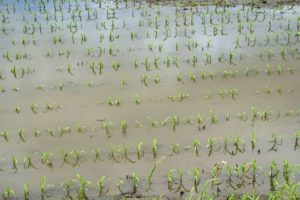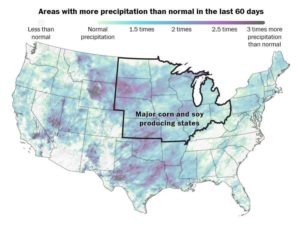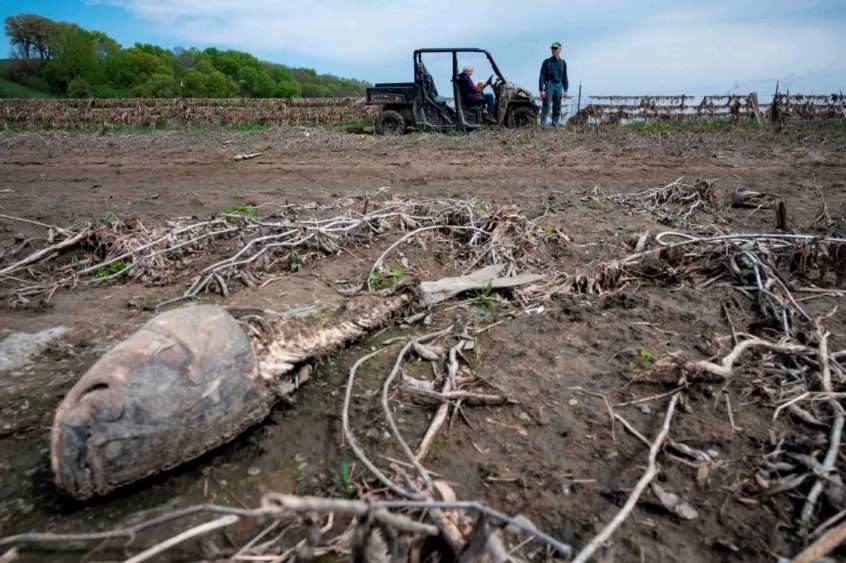After a spring of Biblical-like weather, the breadbasket of America is breaking. Corn Belt farmers are used to being at the mercy of the weather, but they are not used to the weather being like this.
Through the spring, wave after wave of rain hit the nation right in the breadbasket, with April capping the wettest 12 months on record for the continental United States. The past 60 days, in particular, have coincided with planting season in much of the country.
And states across the Corn Belt led the way, nearing or breaking previous precipitation records. Midwest cities from St. Louis to Sault Ste. Marie, Mich., have reported unprecedented rainfall. Data for May will be released later this week and can be expected to set more records.
Recent measurements show most of Illinois’s famous topsoil’s are more waterlogged than they have ever been, University of Illinois economist Scott Irwin said.
Farmers cannot plant in that muck. It fouls their equipment and strangles their seeds. This is not like most years.
It is not enough for the rain to stop. The soil has to dry for as much as a week before they can plant again. According to the latest forecasts from the National Atmospheric and Oceanic Administration, that does not look likely.
It should have been prime planting season. In most years, almost every corn seed would be in the ground by now.
The calendar is ticking toward the point of no return. New data released Monday shows farmers have planted 67 percent of the acres they had planned to put in corn. In key states such as Illinois (45 percent) and Indiana (31 percent), it is even lower.
When Sherman Newlin surveys the 2,250 acres he farms near Hutsonville, Ill., he can still see standing water. It feels like a recurring nightmare.
Farmers provide drainage and struggle to prepare the soil for planting, he said, “and then it rains, and you’re back to square one.” “If we get another big rain, it’s over,” Newlin said.
 Even under the most generous definitions, much of the Corn Belt has only one hail-Mary planting window left. The coming week’s weather will make or break this year’s crop.
Even under the most generous definitions, much of the Corn Belt has only one hail-Mary planting window left. The coming week’s weather will make or break this year’s crop.
The unplanted acres of corn are unprecedented, and those who focus exclusively on planting may underestimate the problem, University of Wyoming agronomist Andrew Kniss said.
After weather this wet, much of what has been planted will likely need to be replanted. Seeds are struggling. If they come up at all, growth could be stunted.
For many farmers, the clock has run out on corn for 2019. Even if they work around the clock under optimal conditions, there just are not enough hours to finish planting.
Estimates are that 10 million acres will go unplanted, and as fears of a bad crop spread, corn prices are rising — they are already up about 20 percent since their mid-May low.
As more farmers give up on 2019, alarmed traders will probably bid up prices on corn and soybeans, making costs soar for ethanol producers, hog farmers and others who are already caught in the president’s escalating two-front trade war.
Farmer Newlin says, “The whole year has just turned into a crisis.”
The Biblical Prophecies (Matthew 24, Luke 21, Revelation 6) foretell that famine is a sign of the Last Days revealing we are nearing the end of this age and the coming of Jesus Christ.
This ministry is viewer supported: if each of our viewers would give a donation, no matter the amount, as a tax-deductible offering, you will help ensure the signs of Biblical prophecy continue to be shared with the world. Please Give Here so together we can continue sharing more signs of the coming of Jesus.
Do you believe in ministry sharing the prophetic signs of Jesus’ coming? … then please join us as a monthly Partner in Prophecy giving any amount each month to share the signs of His coming. Just check the recurring contribution button on the giving page linked below:
Click below to give any amount as
A Monthly Partner. (on form be sure to click recurring contribution button)
Thank you to all who are giving to this work of ministry, you will be blessed as Lord Jesus said!
Contributions to this non-profit charity are tax-deductible.

